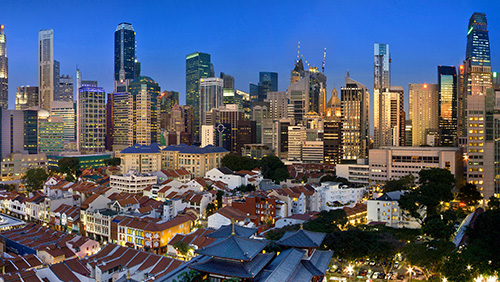In a report issued on August 27, Colliers International reported that 22% of all of the tourism generated in Singapore came as a result of their meetings, incentives, conferences, and exhibitions (MICE) industry. The report further concluded that $2.2 billion of total tourist dollars spent came as a result of this industry.
 The Sands Expo & Convention Center was proud to report that 1.4 million delegates were hosted at their convention center last year and the Marina Bay Sands (MBS) reported that 330 million visitors came to their resorts in 2018. They added that there were 700 new MICE events they were able to offer in their Singapore resort.
The Sands Expo & Convention Center was proud to report that 1.4 million delegates were hosted at their convention center last year and the Marina Bay Sands (MBS) reported that 330 million visitors came to their resorts in 2018. They added that there were 700 new MICE events they were able to offer in their Singapore resort.
Several factors played a role in the improved tourism within Singapore. For example, the report stated, “With a new 15,000 capacity conference center at MBS recently announced and The MICE 2020 Roadmap, Singapore will continue its focus on improving delegate experience through interactive technology, experience, convenience and thought leadership.”
They also added that in 2017, the meetings segment of MICE accounted for $505.8 billion in revenue, but that number was eclipsed by greater than 7.5% in 2018. With positive economic trends, improving infrastructure, and enhanced focus on drawing tourists from across the globe, the rise of terrorism within Singapore has been generated thanks to the initiatives of MICE the report concluded.
Adding to the surge is the fact that the Asia-Pacific area has been proven to be one of the fastest-growing regions in terms of tourism. The MICE report found that visitors were choosing to visit MICE industries nearly two times during 2018.
However, not all the news was good. There appears to be growing concern among many tourists regarding trade disputes, which the report concluded that “The recent escalation in trade disputes continue to weigh on business and consumer confidence, thereby tempering demand growth. However, intra-Asia and growing domestic travel in the larger destinations across Asia is likely to continue to underpin demand in the region.”
It is these kinds of concerns that have led Malaysia, Cambodia, and Indonesia to promote events related to trade and trade activities, hoping to lure people away from such locations as China, Hong Kong, and Singapore. Many are willing to forgo trips to Hong Kong because of recent political upheaval, and there is concern about how this may even impact those attempting to visit China.
That is opening the door to other Southeast Asian nations that are hoping to draw increased numbers of tourists in this climate.